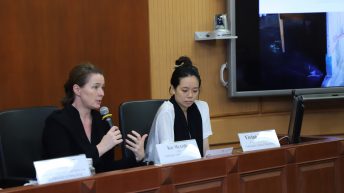Date: 12Apr 2018
The Development of Classical Administrative Law and Modern Threats to it by Professor Christopher Forsyth (Emeritus Sir David Williams Professor of Public Law, University of Cambridge;
Cheng Yu Tung Visiting Professor, The University of Hong Kong) The foundations of classical English administrative law were laid in the mid-1900s. From Wednesbury and Ridge v Baldwin to Anisminic and Padfield, the judiciary has assumed the role of ensuring that public power will be fairly and reasonably exercised. Nevertheless, the foundations of administrative law have been under threat. First, the supremacy of the Parliament has been eroded (see e.g. Evans v Attorney-General). Secondly, there is a tendency of the Supreme Court to not provide clear guidance to lower courts and individuals, placing legal certainty in jeopardy (see e.g. Cart v. The Upper Tribunal). Thirdly, the inception of the Human Rights Act 1998 has led to great legal uncertainty. The proportionality principle has allowed the judiciary to decide on the merits of difficult decisions on which reasonable minds may differ. As English law moves away from the classical model of a principled and conceptual approach to the subject towards a pragmatic mode of reasoning in which the wise exercise of judicial discretion becomes paramount, it will become less relevant in jurisdictions that remain loyal to the classic law.
Professor Christopher Forsyth is one of the most distinguished experts in public law and private international law in the world. He is the author with the late Sir William Wade QC of Administrative Law (OUP, 11th ed, 2014) a standard work relied on and regularly cited across the common law world. He is also the author of Private International Law (Juta & Co, 5th ed, 2012), an authoritative standard textbook on the Roman Dutch conflict of laws regularly relied upon by the courts in Roman-Dutch jurisdictions across Southern Africa. Professor Forsyth has been an adviser to governments over constitutional developments and has trained civil servants in good decision-making in several jurisdictions.




